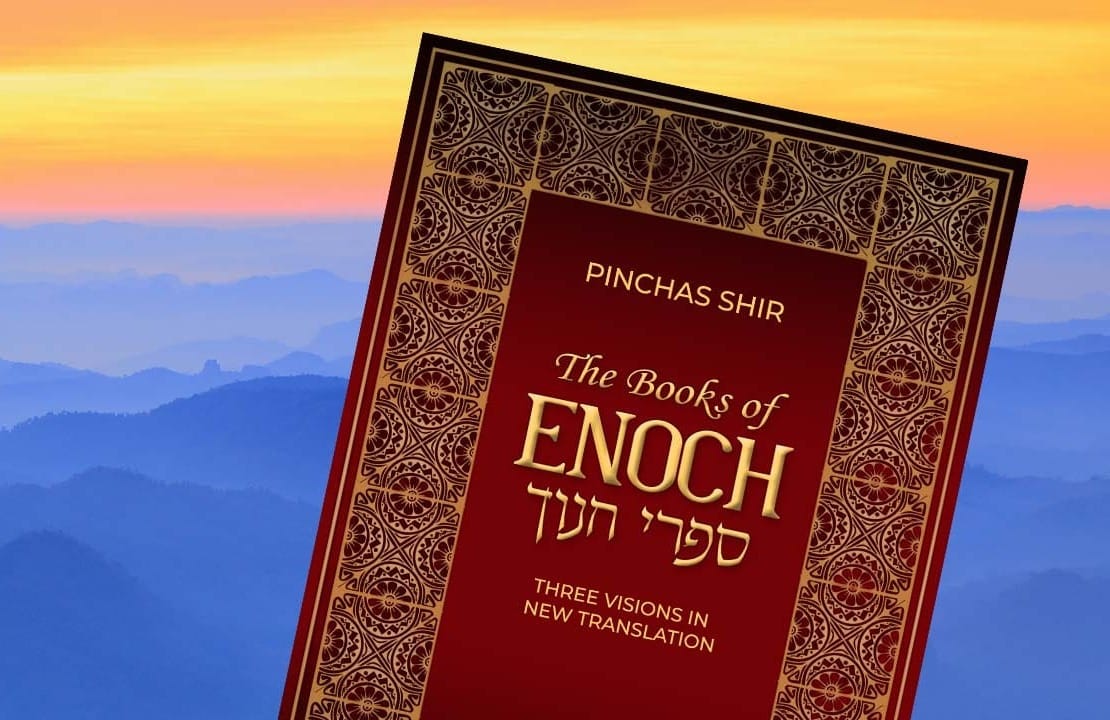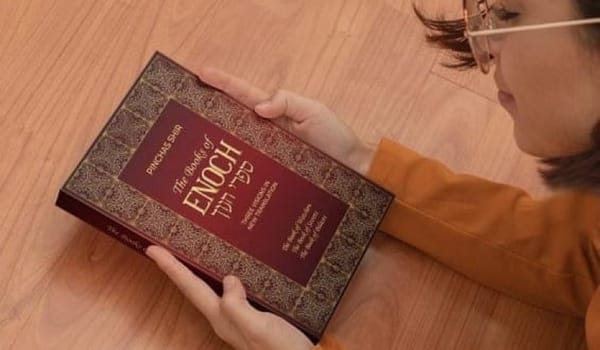If you like perusing Pshir.com, then what are the odds you might enjoy my books? I invite you to consider the titles I highlight below in print, in digital format, or as audiobooks. Paid Subscribers can flip through full digital versions of all these titles inside the READ section.

THE BOOKS OF ENOCH
In this edition, I decided to go a bit deeper in exploring all three books of Enoch and supplied each individual composition with introductions, notes, biblical references, and suggested parallel passages of interest. In my notes, I focused on unique names and terms that may not be very familiar to modern readers. The notes are for those who want to delve beyond the surface reading, but they are non-invasive and easy to ignore if you simply want to enjoy a new culturally nuanced translation.
See this Book on Amazon
Unheard Voices of Hebrew Kings and Prophets
Inside this book are new and updated translations of seven Jewish texts: Prayer of Manasseh, Book of Baruch, Psalms of Solomon, Testament of Moses, Lives of the Prophets, Apocalypse of Moses, and Apocalypse of Abraham. Because these spiritual works are extra-canonical, their voices are often unheard. Curious? Let them speak to you.
See this Book on AmazonTHE FIRST BOOK OF ENOCH >>> The First Book of Enoch is also called "The Book of Watchers" and Ethiopian Enoch. Outdated English translations of Enoch are in the Public Domain and can be found all over the Internet. What sets my rendition apart from others? My new translation presents the ancient text in modern and easy-to-read English, yet with a feeling that one is reading an ancient Semitic text. (Listen to a sample on YouTube)
THE SECOND BOOK OF ENOCH >>> Second Enoch, or "The Book of Secrets or Enoch," is an ancient Jewish book put together sometime during the first century CE. As the seer travels through the seven heavens, he gleans knowledge from the angels, which he passes on to his readers. This edition also includes intriguing lore about Melchizedek and his miraculous birth.
THE THIRD BOOK OF ENOCH >>> Third Enoch is technically not from the Second Temple era, but a much later composition from around the sixth century CE. The story is about Rabbi Ismael's ascent to the heavenly realm and his encounter with Enoch himself. Unlike its predecessors, the style of 3 Enoch is heavily influenced by rabbinic Merkavah language and classical Talmudic traditions. (Listen to a sample on YouTube)

THE BOOK OF BEN SIRA >>> Ben Sira is a Jewish book from the Second Temple era, full of practical life advice and wisdom. Can you imagine a second-century BCE Jew named Yeshua (Jesus) telling you his thoughts about death, happiness, honor, shame, sin, money, proper speech, social justice, table manners, and women? That is exactly what this ancient text offers.

Missing Ingredients
Have you ever felt, as you read the Bible, that it makes no sense? You understand the words but not the meaning or the point the text is trying to make. The truth is - you are not alone. This book is not intended for someone who is new to the Bible or has never seriously studied it. It is meant for those who took plenty of time but still feel like something is missing. This book is for those who sense that there is more depth to those words and want to go deeper.
See this Book on Amazon









Member discussion